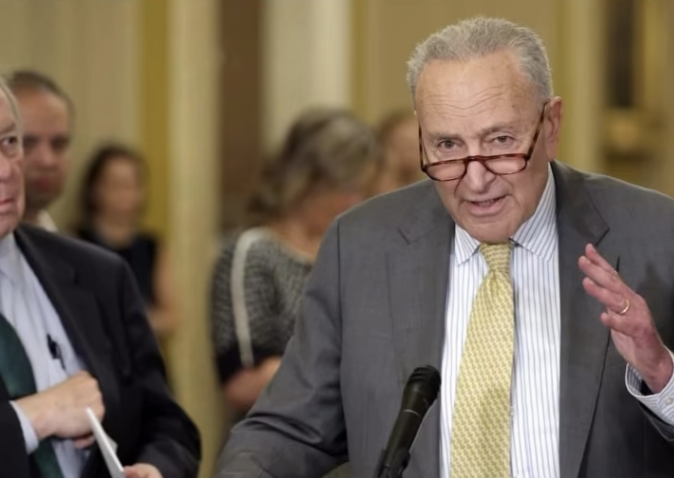‘This Is Deeply Troubling and Concerning’ – Senate Minority Leader Warns ‘Schumer Shutdown’ Threatens Military Healthcare
As the federal government shutdown enters its second week, mounting concerns are emerging over its impact on health care providers serving America’s military families. Doctors and clinics in San Antonio — often called “Military City USA” — report that they have stopped receiving payments for care provided to active-duty service members, retirees, and their dependents through the TRICARE program, according to Breitbart News.
Several providers say they are now facing significant financial hardship as reimbursement delays stretch on. The disruption stems from the budget standoff in Congress, where Senate Democrats have reportedly made the extension of Affordable Care Act subsidies a condition for approving any reopening agreement.
Critics argue that this political impasse — dubbed the “Schumer Shutdown” by opponents — is endangering access to health care for military families across the country. The crisis is particularly acute in San Antonio, home to one of the largest concentrations of Department of Defense facilities and personnel in the nation.
Joint Base San Antonio (JBSA), the largest joint base operation in the U.S. military, includes Lackland Air Force Base, Randolph Air Force Base, Fort Sam Houston, and Camp Bullis. These installations collectively support tens of thousands of service members, veterans, and their families, most of whom depend on TRICARE to meet their medical needs.
Because of the shutdown, civilian health care providers who treat military personnel and dependents are no longer receiving reimbursements, leaving many on the brink of financial collapse. Military retirees, who also rely heavily on TRICARE, are similarly affected and now face growing uncertainty about their future care.
A report from News4SA detailed the toll on local providers. Dr. Britt Sims, Executive Director of Integrated Behavior Solutions — a clinic that serves families with children who have developmental disorders — said her operation is struggling to stay open amid the halt in payments.
“We can last a couple of weeks on what I have personally, but now, I’m done. I’m spent,” Sims told the outlet. “If by some miracle something happens, then I don’t know. We’ll keep fighting somehow.”
Another provider, Dr. Gia Koehne, who runs the Blossom Center for Children in San Antonio, echoed the same concerns. “Because of all of this, everything is completely stalled and halted,” she said. “We have a lot of families that need services, and we just don’t have the capacity to do that because we’re not getting paid.” Her clinic specializes in treating children diagnosed with autism.
TRICARE, the government-funded health insurance program covering active-duty, reserve, and retired service members and their families, warned beneficiaries earlier this month about the possibility of delayed payments due to the government funding lapse.
“During the current lapse in government appropriations, you may continue to get care or attend currently scheduled appointments with your civilian providers,” TRICARE said in an October 1 statement. “Your usual out-of-pocket costs will apply.”
The agency added that members may still fill prescriptions at military or retail network pharmacies, but cautioned that medical claims received on or after October 1, 2025, may not be processed until funding is restored.
“The Defense Health Agency is also working with our TRICARE contractors to communicate with healthcare providers on potential delays in payment,” the statement continued. “We understand this may cause concern and inconvenience, and we sincerely regret the disruption. We remain committed to resuming full operation as quickly as possible once appropriations are enacted.”
Meanwhile, the Trump administration has moved to cushion the blow for active-duty personnel. On Saturday, officials announced plans to redirect unused funds originally allocated for research and development to ensure that military service members continue to receive pay during the shutdown.
Still, as the funding stalemate drags on, the growing strain on military families — and those who care for them — has become an increasingly urgent concern. “This is deeply troubling and concerning,” one Senate Minority Leader said in response to the unfolding crisis, reflecting the mounting frustration across Washington as both political and human costs continue to rise.

